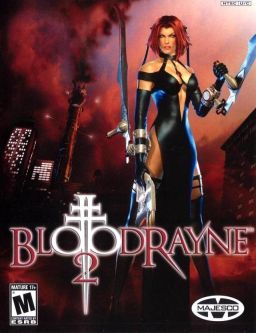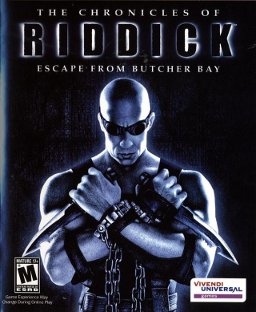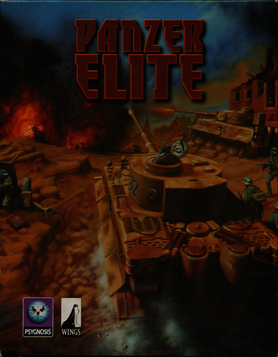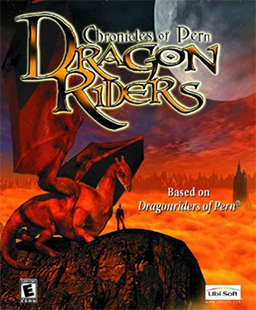Arxel Tribe is a video game and multimedia company, founded by Slovene architects Matjaž Požlep and Diego Zanco in 1990.

Grand Theft Auto: Vice City is a 2002 action-adventure game developed by Rockstar North and published by Rockstar Games. It is the fourth main game in the Grand Theft Auto series, following 2001's Grand Theft Auto III, and the sixth entry overall. Set in 1986 within the fictional Vice City, the single-player story follows mobster Tommy Vercetti's rise to power after being released from prison and becoming caught up in an ambushed drug deal. While seeking out those responsible, Tommy gradually builds a criminal empire by seizing power from other criminal organisations in the city.

Grand Theft Auto III is a 2001 action-adventure game developed by DMA Design and published by Rockstar Games. It is the third main entry in the Grand Theft Auto series, following 1999's Grand Theft Auto 2, and the fifth instalment overall. Set within the fictional Liberty City, the story follows Claude, a silent protagonist who, after being betrayed and left for dead by his girlfriend during a robbery, embarks on a quest for revenge that leads him to become entangled in a world of crime, drugs, gang warfare, and corruption. The game is played from a third-person perspective and its world is navigated on foot or by vehicle. Its open world design lets players freely roam Liberty City, consisting of three main areas.

Shadow of Memories is a mystery adventure game developed by Konami Computer Entertainment Tokyo and published by Konami. Originally released for the PlayStation 2 in 2001, it was later ported to Xbox and Microsoft Windows in 2002. A PlayStation Portable version was released on October 1, 2009 in Japan and on January 26, 2010 in North America.

BloodRayne 2 is an action hack and slash video game developed by Terminal Reality for PlayStation 2, Xbox and Microsoft Windows. It does not follow on directly from where BloodRayne finished; instead, it takes place 60 and 70 years later in a contemporary 2000s setting.

The Chronicles of Riddick: Escape from Butcher Bay is a first-person action and stealth video game developed by Starbreeze Studios and Tigon Studios and published by Vivendi Universal Games. Released for the Xbox and Microsoft Windows in 2004, the game's story is a prequel to the futuristic science fiction film Pitch Black. Actor Vin Diesel—who was involved in the game's development—reprises his role as that film's protagonist, Richard B. Riddick.

Alone in the Dark: The New Nightmare is a survival horror video game and the fourth installment and first reboot of the video game series Alone in the Dark, developed by Darkworks and published by Infogrames Entertainment, SA. The game was released in 2001 on several platforms including Windows, PlayStation, Dreamcast, and Game Boy Color. A PlayStation 2 version of the game was also released several months after and only in Europe.

Ian Livingstone's Deathtrap Dungeon is an action-adventure video game developed by Asylum Studios and published by Eidos Interactive for PlayStation and Microsoft Windows in 1998. It is based on the adventure gamebook Deathtrap Dungeon written by Ian Livingstone, and published by Puffin Books in 1984.

Post Mortem is a murder mystery adventure game by Microïds, released in 2002. Its sequels are Still Life and Still Life 2. The game was also released in French, Italian, German and Spanish.

CSI: Dark Motives is a computer game based on the CSI: Crime Scene Investigation television series. The game was developed by Radical Entertainment, published by Ubisoft, and was released for the PC in 2004. In November 2007 it was remade by Powerhead Games, published by Ubisoft and released for Nintendo DS. The Microsoft Xbox version of CSI: Crime Scene Investigation also contains the cases featured in this game.

Stupid Invaders is an adventure video game developed by Xilam and published by Ubi Soft for Microsoft Windows in 2000 and Mac OS in 2001. A 2001 Dreamcast port was handled by Titanium Studios. The game is based on the animated television series, Space Goofs.

Panzer Elite is a World War II tank simulation game in which the player controls a platoon of 4 or 5 tanks on either the German or American side. The game was developed by Wings Simulation for the Microsoft Windows platform, and was first published by Wing's parent company Psygnosis in 1999.

Star Trek: Hidden Evil is a third-person action-adventure video game released in 1999 by Activision. It was developed by Presto Studios over the course of a year, and was specifically created for the casual gamer market. The plot followed up on the events in the film Star Trek: Insurrection, with the player portraying the character of Ensign Sovok, who works alongside Captain Jean-Luc Picard and Lt. Cmdr Data, with Patrick Stewart and Brent Spiner reprising their roles.

The Saboteur is an action-adventure video game developed by Pandemic Studios and published by Electronic Arts. It was released for Microsoft Windows, PlayStation 3 and Xbox 360 in December 2009. A mobile version of the game was developed and released by Hands-On Mobile for BlackBerry on January 21, 2010, for iOS on March 24, 2010. The game is set in German-occupied France during World War II, and follows Sean Devlin, an Irish race car driver and mechanic, who joins the French Resistance to liberate Paris after his best friend is killed by Nazi forces.

Dragon Riders: Chronicles of Pern is an adventure game published by Ubi Soft in 2001.

Jack the Ripper is an adventure video game, based upon the unidentified serial killer Jack the Ripper. The game was released for Microsoft Windows in 2004. It was developed by Galilea Games and published by The Adventure Company.

Faust, known as Seven Games of the Soul in North America, is 1999 graphic adventure game created by Arxel Tribe, Anne Carrière Multimedia and Cryo Interactive. Loosely inspired by Goethe's Faust, it tells the story of Marcellus Faust and his battle of wills with the demon Mephistopheles.

Pilgrim: Faith as a Weapon is a 1997 adventure video game, written by Paulo Coelho, who wrote The Pilgrimage, the novel on which the game is based. Pilgrim has been described as a "commercial cultural heritage game" and "graphic interactive fiction". It is the premiere title of Arxel Tribe and the first in an adventure trilogy, which also includes The Legend of the Prophet and the Assassin (1999) and The Secrets of Alamut (2001).

The Legend of the Prophet and the Assassin is an adventure game by Arxel Tribe. It is the sequel to Pilgrim: Faith as a Weapon. It was released in October 2000 for Windows. The game is inspired by the work of Brazilian novelist Paulo Coelho. A sequel, The Secrets of Alamût was released in March 2001.

Alfred Hitchcock – Vertigo is an adventure video game developed by the Spanish company Pendulo Studios and published by Microids. It is loosely based on the films of Alfred Hitchcock, particularly Vertigo (1958). The story follows a man named Ed Miller, who enters therapy to cope with the mysterious after-effects of a car crash.

















